The South Korean violinist talks to Andrew Mellor about competitions and her experience so far of life as a professional solo violinist
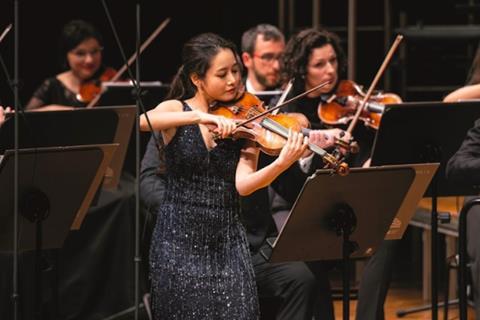
The following extract is from The Strad’s June issue cover feature profiling the rising star violinist Bomsori Kim. To read it in full, click here to subscribe and login. The June 2021 digital magazine and print edition are on sale now
‘I have started to enjoy the process,’ Kim says of turning up in a new city to work with a new group of colleagues for a week. ‘It’s always refreshing to be exposed to new ideas, that two people can interpret things so differently. There are more questions I’m not afraid to ask now, and I am more open to listening to opinions, to seeing if it works for me and if I can apply it to my own music making. Anyway, answers in music are never a hundred per cent clear; things are always open-ended.’
It was a string of prizes at numerous international competitions that brought Kim to prominence in the mid-2010s, including a shared second prize in the violin category at the 2013 ARD International Music Competition in Munich (first prize was not awarded that year) and eleven prizes at the 2016 International Henryk Wieniawski Violin Competition. What she learnt above all from the competition circuit was stamina. ‘You’re there for a month, you’re putting all your efforts into each round. It was helpful for me to learn about that strength, in preparation for becoming a professional concert violinist.’
Read Bomsori: Singing from the heart
Read The Strad June 2021 issue is out now!
Watch Bomsori plays Wieniawski Violin Concerto no.2
Read Violinist Bomsori Kim signs to Deutsche Grammophon
Is the professional life a little easier than endless competitions? ‘No, it’s worse. It’s really a lot worse!’ In what sense? ‘Because there’s all the travelling and all the stress, and the people you meet don’t know what situation you are in. At least in a competition, people know you’re in a competition: that you’re in the third round or fourth round. When you appear somewhere to give a concert, they don’t know where you’ve been the week before. You are there just once, and maybe you will never be invited back, so you have to give your best all the time – to everybody.’
-
This article was published in the June 2021 Bomsori issue
The Korean violinist on graduating from the competition circuit to become an international soloist - and why singing is at the heart of her playing. Explore all the articles in this issue .Explore all the articles in this issue
More from this issue…
- Korean violinist Bomsori
- The Knopf bow making dynasty
- Violinist Joseph White’s 1875 New York debut
- Sitkovetsky Trio on recording Ravel
- Master copyist Vincenzo Postiglione
- London-based string group the 12 Ensemble
Read more playing content here
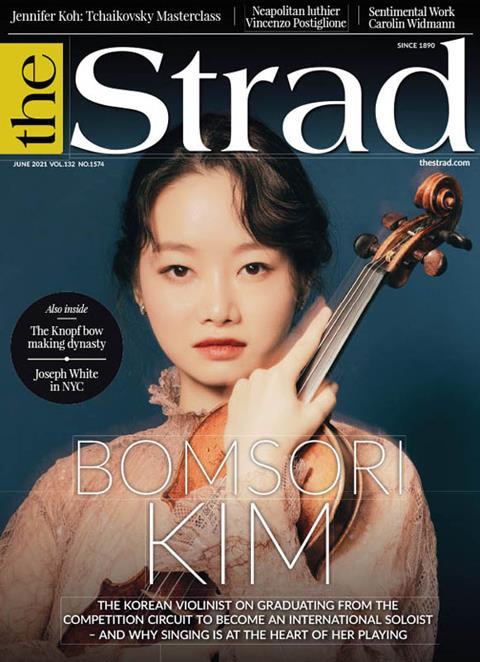



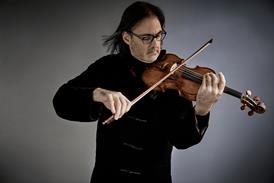
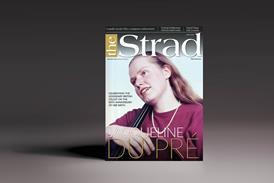

















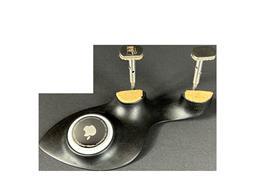
![[1] Tae-Yeon Kim pc Marta Ankiersztejn - National Institute of Music and Dance](https://dnan0fzjxntrj.cloudfront.net/Pictures/100x67/5/9/7/34597_1taeyeonkimpcmartaankiersztejnnationalinstituteofmusicanddance_41722.jpg)
![[1] Javus Quartet pc Victoria Nazarova](https://dnan0fzjxntrj.cloudfront.net/Pictures/100x67/2/1/2/34212_1javusquartetpcvictorianazarova_822675.jpeg)
![[3] Soyoung Yoon pc Julia Wesel](https://dnan0fzjxntrj.cloudfront.net/Pictures/100x67/7/7/0/33770_3soyoungyoonpcjuliawesel_221630.jpg)









No comments yet